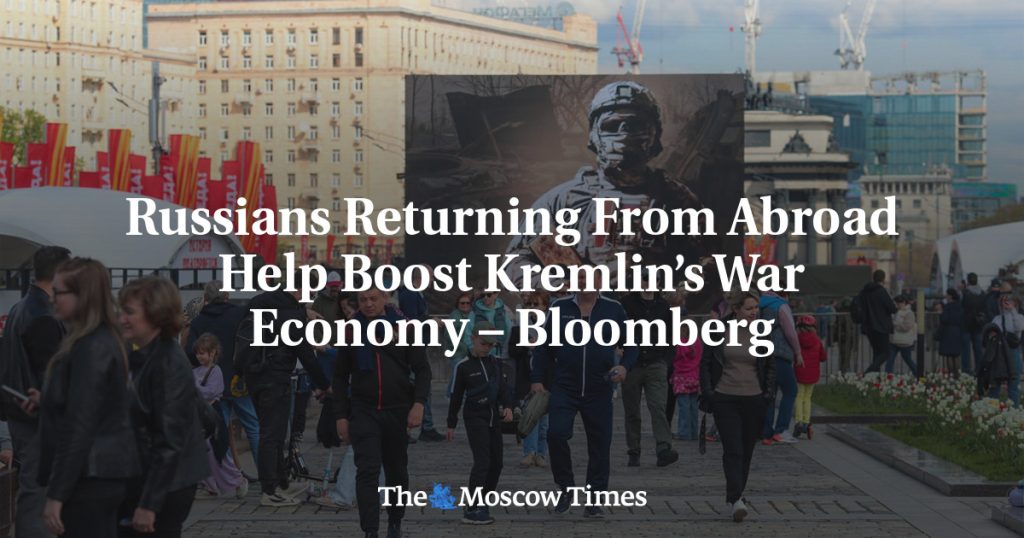In 2022, over 1.1 million Russians fled the country after Moscow’s invasion of Ukraine, but a significant portion have since returned, contributing to Russia’s economic growth in the face of Western sanctions. Between 40% and 45% of those who left have reportedly returned, with estimates suggesting that they played a role in one-fifth to one-third of Russia’s GDP growth in 2023. Many of these returnees decided to come back due to difficulties in renewing residence permits abroad and experiencing discrimination, even in countries considered friendly to Russia and without sanctions against Moscow.
According to sociologists and analysts, many Russians who returned home felt a sense of resentment and disillusionment abroad, leading them to reconsider their views on Russian leadership. The propaganda machine in Russia has seized upon these comeback stories to bolster the narrative of widespread “Russophobia” in the West, providing Putin with further justification for his actions. This sense of insecurity among Russian expatriates is expected to continue driving repatriation as the conflict in Ukraine persists.
Russia experienced two waves of outward migration in 2022, initially triggered by the invasion of Ukraine and later by the announcement of a “partial” mobilization by the Kremlin. Many Russians left due to their opposition to the war, fears of economic collapse, or a reluctance to be drafted into the military. While Putin initially characterized this exodus as a necessary cleansing of society from undesirables, he later shifted his rhetoric to emphasize the importance of maintaining ties with Russians living abroad as a means of connecting with foreign partners.
The economic impact of returning Russians has been significant, with their contributions cited as a key factor in bolstering Russia’s GDP growth amidst challenging geopolitical conditions. The repatriation trend is seen as a byproduct of the ongoing conflict in Ukraine and the broader atmosphere of uncertainty faced by Russian expatriates in countries that have strained relations with Moscow. As the war drags on, it is anticipated that more Russians may choose to return home, further shaping the dynamics of both domestic and international politics.
The return of Russian entrepreneurs and highly skilled workers is seen as a positive development by Putin, who views it as a validation of his policies and a sign of the strength of the Russian nation. The repatriation process is also seen as a means of countering the negative narratives about Russia that prevail in the West, providing a source of national pride and reinforcing loyalty to the Russian government. As the situation evolves, the impact of returning Russians on Russia’s economic and political landscape will continue to be closely monitored by observers both within and outside the country.
Overall, the influx of returning Russians has had a significant impact on Russia’s economy and politics, reshaping narratives about the country in the context of its ongoing conflict with Ukraine. The repatriation trend reflects a broader sense of insecurity among Russian expatriates and a desire to forge stronger ties with the homeland in the face of external pressures. As Russia navigates the challenges posed by Western sanctions and international isolation, the return of its citizens from abroad serves as both a source of strength and a reminder of the complexities of global politics in the 21st century.















